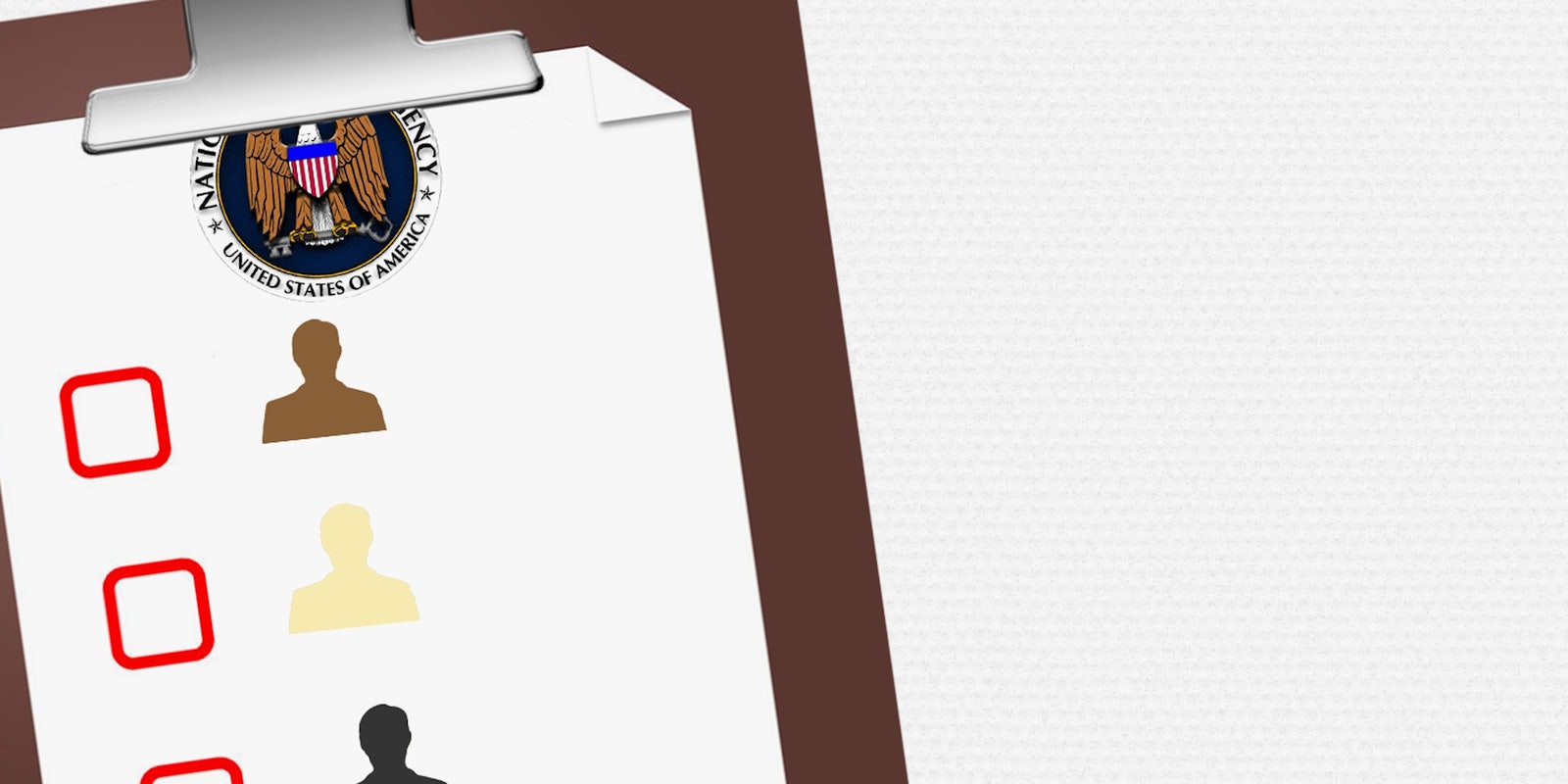President Obama wants Americans to rest assured: By law, the NSA is only allowed to track someone without a warrant if they’re a foreigner.
But the NSA, we’ve seen, uses loopholes in that law—what Senator Ron Wyden (D-Ore.), has for years called “back door” searches on Americans. For instance, as long as the NSA doesn’t have explicit proof that a target is American, an agent can, using a program like PRISM, track a person’s communications by legally demanding information from Gmail or Facebook. That agent just has to have a reasonable belief that their target is foreign.
Thanks to leaked documents provided by the Guardian, we have the NSA’s handy checklist of what makes a person foreign enough to track. Keep in mind this list is not exhaustive; it’s just a start. According to the document, “the NSA considers, among other things, the following factors”:
1. You’ve called or a received a call from somebody the NSA thinks is connected to a foreign power.
“Information indicates that the telephone number has been used to communicate directly with another telephone number reasonably believed by the U.S. Intelligence community to be used by an individual associated with a foreign power or foreign territory.”
2. Somebody connected to a foreign power put your number in their contacts list.
“Information indicates that the telephone number is listed in the telephone directory of a telephone used by an individual associated with a foreign power or foreign territory.”
3. They found a phone book or online directory that lists your number as tied to a foreign power.
“Publicly available sources of information (e.g. telephone listings) match the telephone number to an individual reasonably believed by the U.S. Intelligence Community to be associated with a foreign power or foreign territory.”
4. The NSA already had your number in a database because it came up in an earlier investigation.
“Information contained in various NSA-maintained knowledge databases containing foreign intelligence information acquired by any lawful means, such as electronic surveillance, physical search, or the use of pen register and trap or trace device, or other information, reveals that the telephone number had previously been used by an individual associated with a foreign power.”
5. You’ve emailed, Skyped, IM’d, tweeted at, Facebook messaged, or in any other way communicated with a foreign power of interest over the Internet.
“Information indicates that a user of the electronic communications account/address/identifier has communicated directly with an individual reasonably believed to be associated with a foreign power or foreign identity.”
6. You use AIM with a person connected to a foreign power. Or such a person has you in their contacts list.
“Information indicates that the electronic communications account/address/identifier is included in the “buddy list” or address book of an electronic communications account/address/identifier reasonably believed by the U.S. Intelligence Community to be used by an individual associated with a foreign power or foreign territory.”
7. Your public online activity matches that of a person the NSA thinks is somehow connected to a foreign power.
“Public Internet postings match the electronic communications account/address/identifier to an individual reasonably believed by the U.S. Intelligence Community to be associated with a foreign power or foreign territory.”
8. The NSA has, after processing metadata like those Verizon phone records it collects every day, decided that any some part of your online persona is used by a person connected to a foreign power.
“Information made available to NSA analysts as a result of processing metadata records acquired by any lawful means, such as electronic surveillance, phyiscal search, or the use of a pen register or trap and trace device, or other information, reveals that the electronic communications account/address/identifier is used by an individual associated with a foreign power or foreign territory.”
9. You try to hide your tracks online by using a service like TOR, which allows your Internet protocol (IP address) to appear to come from elsewhere.
“Information indicates that Internet Protocol ranges and/or specific electronic identifiers or signatures (e.g., specific types of cryptology or steganography) are […] extensively used by individuals associated with a foreign power or foreign territory.”
If the NSA does ever find conclusive proof that you’re American, well, it’s supposed to delete your file. As assistant Attorney General James Cole told the House Intelligence Committee Tuesday, in those cases, “if we inadvertently acquire any of it without meaning to, again, once that’s discovered, we have to get rid of it. We have to purge it.”
And if you’re not American, well, you’re probably out of luck.
Illustration by Fernando Alfonso III


